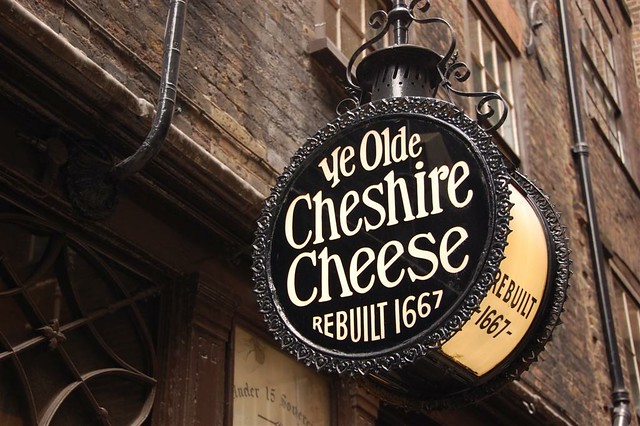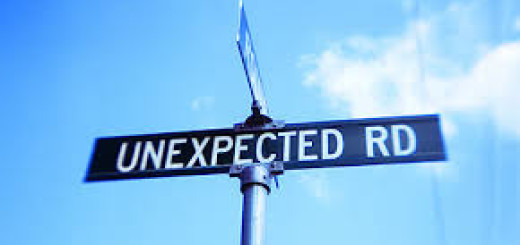Word History of the Week: Ye
Welcome again to The Word of the Week! This edition, we’re going back in time to visit Ye Olde Word Facts.
If you think of restaurant trying to seem quaint and English, the first thing you might think is that it’ll be called ye olde something. But what the heck does ye mean? Today’s post is more about the printing press than actual word history, but I think other people will find it as interesting as I do.
English has many old versions of itself – one version known as Early Modern English, in use from the 15th to the 17th century. During this period, the word the was written as þe. That weird letter you see there, þ – it’s called a thorn and it makes the TH sound. This letter was popular not only in Old English but also in Old Norse and Icelandic alphabets. It’s important to point out the difference between a written letter and a spoken sound. The thorn was used in Early Modern English only as a written letter, in special abbreviations, but otherwise during this period they were using the th spelling for the sound. By the way, in case you were curious, when two symbols are used for one sound, in the case of th, it’s called a digraph.
So, back to my point. They used that squiggly character thorn in special abbreviations in writing, such as for the words the, that, and thou. Here’s what that would have looked like for the word the: ![]() Looks kind of like a Y right? If you pay close attention you can see how the swoop in the top right hand side of the figure meets the vertical bar, so it sort of looks like a P in my opinion.
Looks kind of like a Y right? If you pay close attention you can see how the swoop in the top right hand side of the figure meets the vertical bar, so it sort of looks like a P in my opinion.
Now, introducing the printing press! Most printing presses around this period came from areas where the letter thorn was not in use, so when England received their printing presses, they had no way to represent this letter. In order to get around this, people used the letter Y to represent the thorn in print form. This would explain why there are certain texts from the time period that use ye for the. This didn’t bother most people; since they knew the thorn looked like a Y, they were easily able to read their texts without being confused about this weird Y stuff.
As the centuries past and the printing press changed more, it become more difficult to represent the letter thorn in text and eventually they just switched over to the good, ol’ th that we have today. Over time, people forgot the letter thorn all together, which is where we get the word ye. That’s how it looks, so wouldn’t that be how they pronounce it?
Makes you wonder what people will think of our writing centuries from now.

Sources:
http://en.wikipedia.org/wiki/Ye_Olde
http://www.thefreedictionary.com/ye
http://en.wikipedia.org/wiki/English_articles#Ye_form
http://en.wikipedia.org/wiki/Early_Modern_English












C: Emerson, my knowledge expands thanks to you. That was enlightening.
I love how the printing press is to blame for so much change to our vocabulary. Thanks for the insight Emerson!
So is it supposed to be pronounced “ye” or “thee”? Don’t know if it really matters since it’s obsolete!
That makes the use of it in fake-old stuff these days make a lot more sense.
It’s not YOU Old Curiositie Shoppe, but THE Old Curiositie Shoppe, even though we now pronounce it all wrong ’cause we’re so far past that point.
I still wonder why we add weird endings like the extra e’s and ie instead of y (like above) to make it sound fake-old.
Glad you enjoyed it! I read about this a few days back and it fascinated me so much I had to share. I think the Es on everything, Hannah, might be more archaic spellings that are also obsolete now. I can’t say for sure – but I’ll look into it.
Trident – it would be pronounced “the”. I’m not sure if they pronounced the letter e as “uh” or “ee” though, so I couldn’t say whether it’s “the” or “Thee” – if yo know what I mean.
People probably would laugh if you had said “ye” back then! although I think at one point, it was a pronoun in the English language.
Also – I realized this a few days ago – Nate was the one who put the schedule together for who blogs when. I’m not sure if it was intentional but I think it’s AWESOME that WotW is on Wednesday. SO MANY Ws!!!!
So interesting! I’d like to point out also that ye to mean plural of “you” is still used in Ireland- not just by old country people, but by nearly everyone!